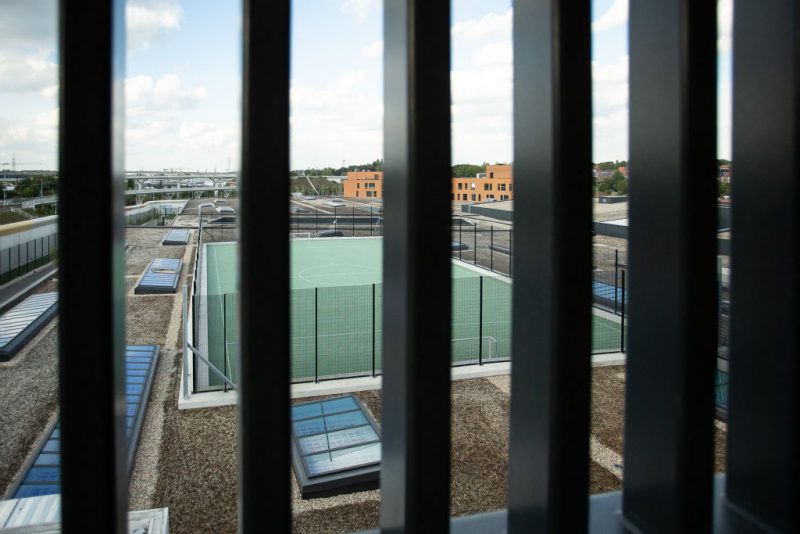
By Timothy Head, Guest Commentary August 31, 2022
(Views expressed by guest commentators may not reflect the views of OAN or its affiliates.)
Our Founders didn’t mince words when they outlined their intentions for America’s legal system. In the preamble to our Constitution, they wrote:
“We the People of the United States, in Order to form a more perfect Union, establish Justice, insure domestic Tranquility, provide for the common defense, promote the general Welfare, and secure the Blessings of Liberty to ourselves and our Posterity, do ordain and establish this Constitution for the United States of America.”
Our entire legal framework rests upon a document explicitly intended to further justice, tranquility, union, liberty and to provide for the general welfare.
A penal system like ours — one that at times has undermined, rather than supported, the general welfare — is clearly a system in need of improvement. And it appears that reform is well underway.
A new report from the Council on Criminal Justice shows that the past 20 years have in fact seen significant and encouraging improvements in criminal justice: The historic norm of disparate imprisonment rates for black Americans fell 40% overall and has declined across all offense categories — by 75% for drug offenses in particular.
Advocates for a better, smarter, safer criminal justice system have been working toward outcomes like this for decades now. This is a profound improvement — and it’s critical we continue to see more progress like this.
Black adults are imprisoned at nearly 4.9 times the rate of white adults in America, and that’s after marked improvement. Disparate arrest rates, incarceration lengths and returns to prison for violations of parole still abide despite these reforms.
Continuing to fix these kinds of problems is essential if we aim to preserve an America of liberty, order, and justice. It’s crucial if we want to build a future where those who run afoul of the law are justly punished, rehabilitated, and returned to an orderly and flourishing society.
This is clearly consistent with our Founders’ vision of justice. What’s more, the very structure of our prison system is something we owe to Benjamin Franklin, and to his commitment to the idea of a criminal justice system that restores criminals morally and socially — thus “penitentiaries,” houses for “penitents,” were born.
Though at first some fairly radical prisons were built, the idea behind Franklin’s innovation is important: Imprisonment isn’t just about punishment, it’s about converting criminals into well-balanced members of a flourishing society.
The penal system in America isn’t just punitive, it is restorative.
That’s why efforts to make our penal system more just, more efficient, and more conducive to national flourishing is a cornerstone of any real program for long-term crime reduction. Our prisons exist inside our nation, not outside of it. Citizens go into our jails and prisons, and citizens come out of them. Whether they are better or worse off when they come out is partially up to us, at least to some extent.
It also is up to us whether the penal system makes us all better or worse off. After all, prisons riddled with disparities, inefficiencies and injustices will gradually worsen the society they’re intended to serve. Crime will actively worsen, not improve.
If we believe, as the Founders did, that man is endowed by his Creator with certain unalienable rights, we must commit ourselves to a comprehensive and ongoing effort to realize justice for those within and without our penal system.
Our investment in improving our criminal justice ultimately is an investment in justice for all of us.
That is why it’s so imperative that we continue electing legislators and public officials who will actively endeavor to study the advancements we’ve made so far — and press for greater justice in the future.
Improving our criminal justice system isn’t a partisan issue, it’s a national one. We need men and women who are willing to lead smart, practical, bipartisan policy efforts for the sake of our country, in the spirit of the Founders.
So, vote to make our criminal system once again a means of rehabilitating citizens, establishing justice and restoring safety and peace to our communities. Vote for just, principled reform. Make sure the last 20 years of progress — and the daring, unprecedented hope embodied in our Founders’ vision of justice — isn’t lost to us. Timothy Head is executive director of the Faith & Freedom Coalition.

